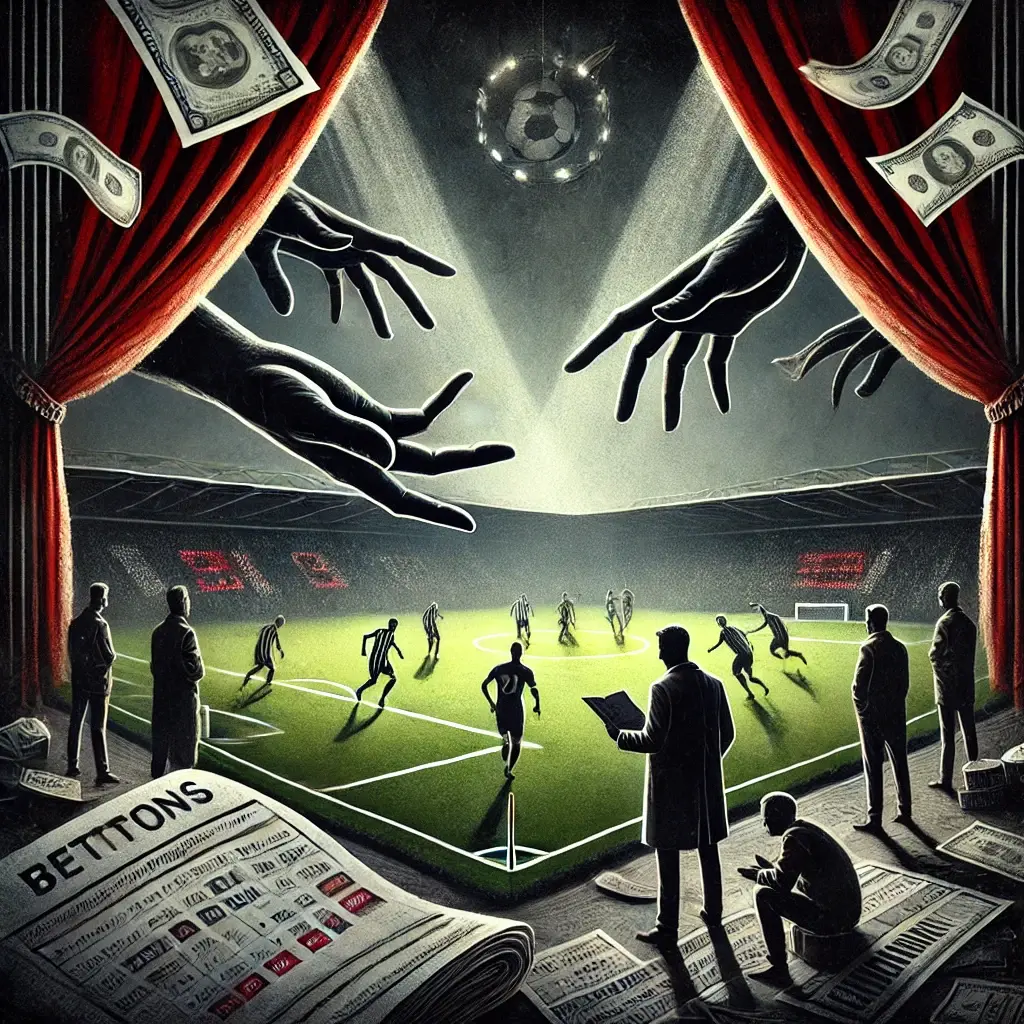
Introduction to the Issue
Fixed matches are one of the biggest threats to modern sports. Betting on sports has grown into a multi-billion-dollar industry, and unfortunately, not all participants play by the rules. Scandals involving fixed matches often make headlines, drawing attention to the questionable actions of footballers, coaches, and even referees. One of the most intriguing aspects is when players end up owing bookmakers millions for fixed matches that never materialized.
This issue involves numerous factors: pressure on players, the influence of bookmakers, corruption in sports structures, and, of course, greed. Let’s break down how such situations occur, why they happen, and the consequences they bring for all parties involved.
How Do Fixed Matches Work?
A fixed match is a pre-arranged outcome of a game designed to generate profit. This phenomenon is most common in lower divisions, where oversight by sports associations is weaker, and players’ salaries are significantly lower.
The mechanics of a fixed match are usually as follows:
- An organizer (often a middleman) negotiates with key players or an entire team.
- Players are promised monetary rewards for specific actions, such as losing the game, conceding a certain number of goals, or receiving yellow cards.
- The organizers place large bets through intermediaries to avoid raising suspicion from betting companies.
- The match outcome aligns with expectations, and the money is distributed among all participants in the scheme.
How Are Bookmakers Involved?
Betting on fixed matches is a lucrative but risky business. When bookmakers detect that a match result was pre-arranged, they have the right to void bets or demand reimbursement. Some bookmakers deliberately engage with the organizers of such matches to share in the profits, but this is illegal and fraught with serious consequences.
In cases where the deal falls through, the players involved are often held accountable. They are then forced to cover the losses of the organizers or even the bookmakers themselves, leading to enormous debts.
Why Do Fixed Matches Fail?
Despite meticulous planning, fixed matches sometimes fail. Here are the main reasons:
- Players change their minds. Footballers often back out, fearing the consequences for their careers or reputations.
- Vigilance by referees or sports associations. In some cases, referees notice suspicious actions by players and adjust the game accordingly.
- Errors in execution. Even with an agreement involving one or more players, other team members may unintentionally disrupt the plan.
- Law enforcement intervention. Investigations initiated by complaints or anonymous tips can derail the deal at the last moment.
Consequences for Footballers
When a fixed match fails, the consequences for participants can be severe:
- Financial debts. Players are often required to compensate organizers for their losses, with sums reaching millions of dollars.
- Reputational damage. Even a hint of involvement in fixed matches can destroy a footballer’s career.
- Criminal charges. In some countries, participating in fixed matches is a criminal offense.
- Bans from the sport. International sports organizations like FIFA and UEFA impose strict penalties on those involved in such scandals.
Real-Life Examples
1. The Russian Case
A recent scandal in one of Russia’s lower football divisions revealed how young players are often influenced by organizers of fixed matches. A team that was supposed to lose by a specific score unexpectedly won the game, violating all agreements. As a result, the players were left indebted to the organizers. One of them even had to sell his car to partially cover the debt.
2. Esports and Betting
The problem isn’t confined to traditional sports. Esports has also seen its share of fixed matches. In one case, a team agreed to lose a tournament game for profit but accidentally won. Consequently, the players found themselves in debt to the bookmakers.
How Can the Problem Be Addressed?
Fighting fixed matches requires a comprehensive approach:
- Enhanced oversight. Sports organizations must closely monitor matches, especially in lower divisions.
- Transparent betting practices. Bookmakers should report suspicious bets to law enforcement.
- Player education. Athletes need to understand the consequences of participating in fixed matches.
- Strict sanctions. Punishments for involvement in such schemes must be more severe.
Conclusion
Fixed matches are a complex phenomenon involving multiple parties. While financial incentives ensure that such schemes persist, joint efforts by sports associations, bookmakers, and law enforcement can minimize fraud cases. For players, it’s crucial to remember that short-term gains never justify the long-term consequences.
